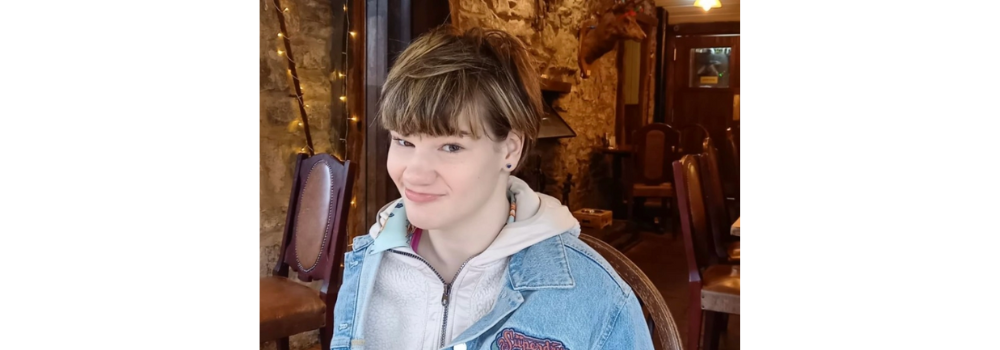As part of cerebral palsy awareness month, Melissa Cassidy has written a blog about independence and what it means to her.
What does independence mean to me?
As you grow up with a disability there’s always increasing questions that arise in yourself and from others about how independent you are going to be in life. There’s always the assumption that you as a disabled person don’t have the same desire as others to be independent which can often be quite harmful and discouraging. I think this belief comes from the idea that most disabled people lack ambition – for most people this couldn’t be further from the truth.
Independence is a very personal concept and no two people will have the same definition of independence. For example, when I was seven years old I thought independence was being able to get dressed myself, when I was twelve I thought being able to take showers and baths myself was independence and now I see it as being in control of my week and doing things like studying and writing. I’ve learned through this that independence is subjective. Personally I’m very ambitious so often I can inflate my definition of independence which can become overwhelming; I think this is because I’m lucky in the abilities that I do have and as a result of this I push myself. Overall though, you can’t define independence or say who is or isn’t independent.
If we want to use the arbitrary scale of independence though – I’d say I am fairly independent. I’ve had my house adapted to allow me to do essentially all my personal care myself which I’m really thankful for. I go out with friends myself and I can use public transport safely. Keep in mind that I’m 17 now so all this has been gradually worked towards and nothing has come easy. I am still working on learning kitchen skills though and currently this is what I think would limit me from moving out (a huge personal goal). I also can’t do my own hair which is why I’ve kept it short for most of my teenage life although I have started growing it out in determination to find a solution. Sometimes I find it difficult to accept that I need help because I am so desperate to be prepared for adult life.
There’s also very much a social pressure to be independent when you’re disabled. It’s almost like people see those who manage the stereotypical definition of “independence” and are disabled as better than those who don’t which is pretty absurd. I often get asked a lot nowadays questions like “how will you get a job?” Or “how will you live alone?” And while these aren’t asked with bad intentions I think it’s quite rude firstly to assume that everyone must follow these paths and secondly to assume that disabled people can’t achieve these things. Judging people based on they’re “independence” is also really hypocritical in the sense that if a disabled person can’t dress themselves they’re seen as not “independent” but if an able-bodied person breaks their arm and can’t dress themselves we don’t suddenly think if them differently or imagine their lives differently.
Ultimately independence as a disabled person is about achieving the goals you set for yourself as opposed to living up to a societal standard of what you should be doing. It doesn’t change who you are because in my opinion a person is what they can do, not what they can’t.
